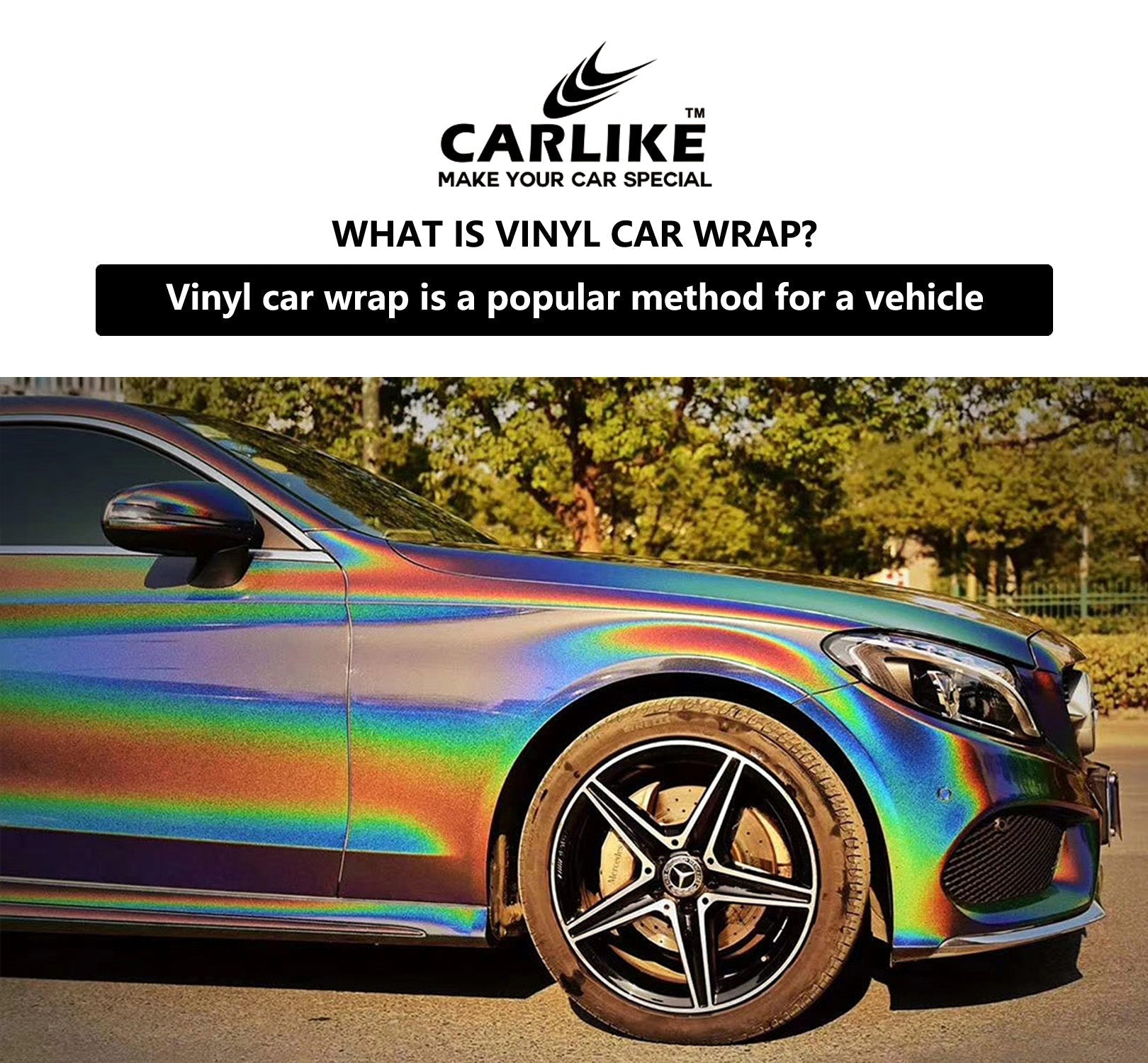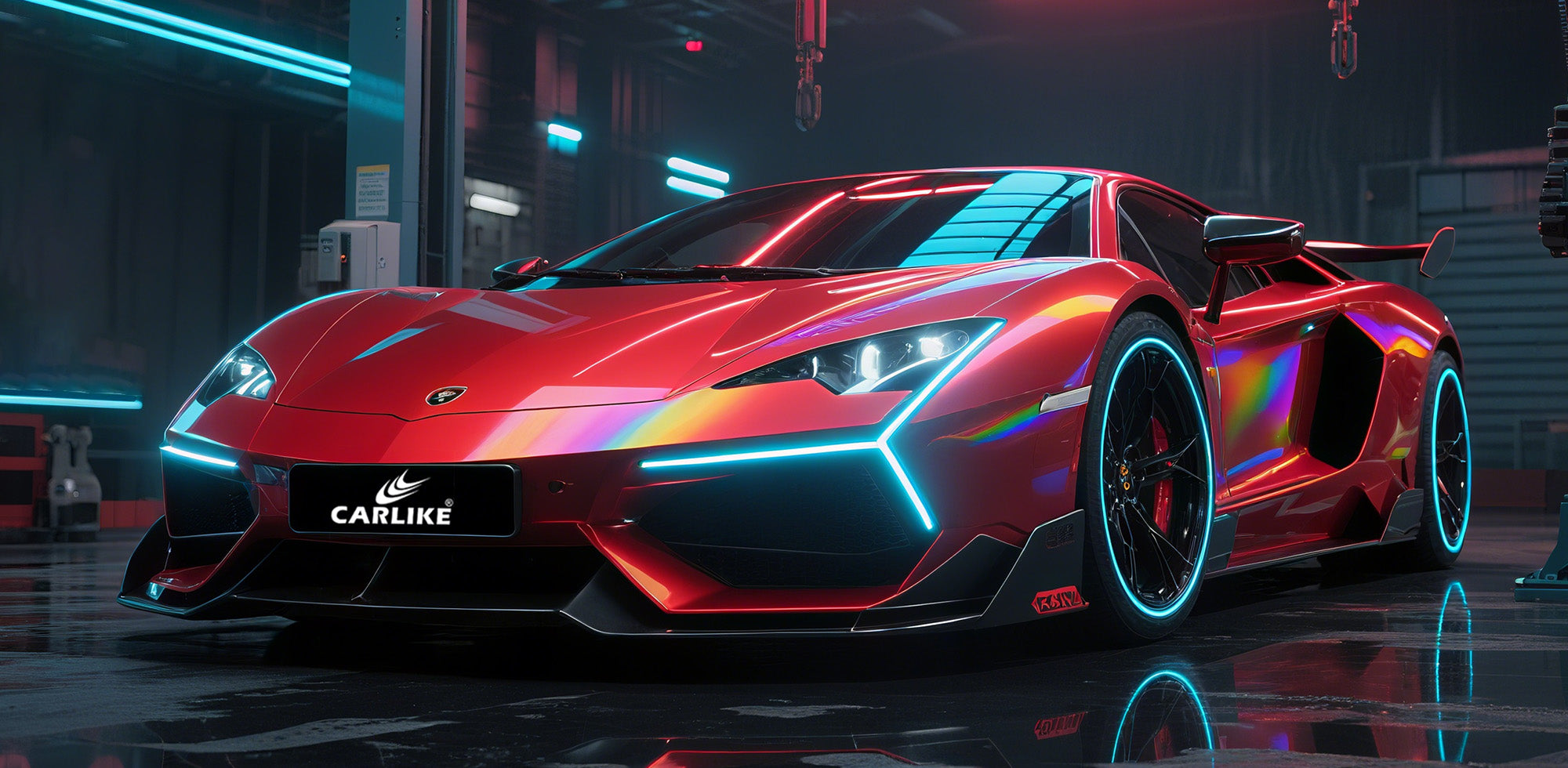
How much is the car wrap cost?
Are you looking to give your car a fresh, new look that's both eye-catching and durable? Car wraps are an excellent way to achieve just that, but with so many options available, it can be tough to know what to expect when it comes to cost. In this comprehensive guide, we'll take a deep dive into all things car wrap cost-related. We'll explore the different factors that can influence the cost of a car wrap, including the size of your vehicle, the type of vinyl used, and the complexity of the design. We'll also cover frequently asked questions, offer tips on how to save money on your wrap, and provide insights into what to look for in a quality car wrap service provider. So if you're ready to learn everything you need to know about the cost of wrapping your car, let's dive in!
The Different Factors that Affect Car Wrap Cost: Explained
Car wrap costs can vary widely based on a number of different factors. The size of your vehicle is a key consideration, as larger vehicles will require more vinyl and therefore cost more to wrap. The type of vinyl used is another factor, with premium vinyls often costing more than basic options. The complexity of your design will also influence the cost, as intricate designs will take longer to install and may require more specialized skills. Additionally, the condition of your vehicle's paint and bodywork can affect the cost, as repairs or preparation work may be necessary before wrapping can begin.

How Much Does a Full Car Wrap Cost?
Entirely wrapping the exterior of your car with vinyl is called a full car wrap. The vinyl wrap a car costs from $2,500 to $5,000. Nonetheless, the price may differ significantly based on your vehicle's dimensions, the vinyl category utilized, and the intricacy of the pattern.
Type of Vinyl
Another key factor that will affect the cost of a car wrap is the type of vinyl used. Several vinyl varieties are obtainable, each exhibiting distinct characteristics and a price range. A cast vinyl wrap is the most basic and may cost approximately $2,000 to $3,000. In contrast, a 3M or Avery Dennison premium wrap could cost $3,500 to $5,000 or even more. Your budget, preferred aesthetics, and the extent of protection you desire for your vehicle will determine the type of vinyl you select.
Complexity of the Design
Last but not least, the intricacy of your design will also be a factor in how much your car wrap will cost. A simple design, like a solid color or a basic pattern, will obviously be less expensive than a more intricate design that involves multiple colors, gradients, or custom graphics. If you're working with a professional vinyl wrap installer, they'll be able to provide you with an accurate quote based on the complexity of your design and the amount of time it will take to install.
Conclusion
Transforming your car with a vinyl wrap can be a pricey affair, but the total cost is determined by a variety of factors, including the size of your ride, the type of vinyl used, and the complexity of your design. However, the expense is definitely worth it if you're seeking to give your car an exceptional and stunning appearance. Just remember to partner with a trustworthy installer who can help you achieve the perfect look for your budget.
The Cost of Partial Car Wraps: What to Expect
Partial car wraps involve wrapping only certain areas of your vehicle, such as the hood, roof, or doors. The cost of a partial wrap will depend on which areas you want to wrap and the size of your vehicle. On average, a partial wrap will cost between $500 and $2,000, although this can vary widely based on the factors mentioned above.

The Benefits of a High-Quality Car Wrap, and Its Associated Cost
While high-quality car wraps can be more expensive, they offer a number of benefits over cheaper options. Premium vinyls are typically more durable and long-lasting, meaning that your car will look great for longer. Finally, a well-executed car wrap can enhance the resale value of your vehicle, making it a worthwhile investment.
Comparing the Cost of Car Wraps to Other Vehicle Modification Options
Car wraps are just one of many options for modifying your vehicle's appearance. Other popular options include custom paint jobs, body kits, and aftermarket parts. While each option has its own pros and cons, car wraps are often more affordable than other modification options, and can be easily removed if you decide to sell or trade in your vehicle.
DIY Car Wrapping: Can it Help You Save Money on Costs?
While DIY car wrapping can be a cost-effective option, it's important to weigh the potential savings against the risks involved. Car wrapping requires specialized skills and equipment, and mistakes can be costly to fix. Additionally, DIY wraps may not be as durable or long-lasting as professional installations, which could end up costing you more money in the long run.

What to Look for in a Car Wrap Service Provider: Quality vs. Cost
When choosing a car wrap service provider, it's important to balance cost with quality. Look for a provider who uses high-quality vinyls and offers a warranty on their work. Additionally, ask for references or reviews from previous customers to get an idea of their level of experience and expertise.
Understanding the Different Types of Car Wraps and Their Costs
There are several different types of car wraps available, each with its own costs and benefits. Some popular options include full wraps, partial wraps, color-change wraps, and commercial wraps. The cost of each type of wrap will depend on the size of your vehicle, the type of vinyl used, and the complexity of the design. full wraps, partial wraps, color-change wraps
Hidden Costs to Watch Out for When Wrapping Your Car
While the cost of the vinyl and installation are the most obvious expenses associated with car wrapping, there are several hidden costs to watch out for as well. One common expense is the cost of removing old vinyl, which can add several hundred dollars to the total cost of the wrap. Additionally, some service providers may charge extra fees for design work or for installing vinyl on complex or hard-to-reach areas of your vehicle. Finally, it's important to factor in the cost of maintenance and repairs over time, as even high-quality vinyls can become damaged or faded over time.
FAQ About Car Wrap Cost, Answered
How long does a car wrap last?
The lifespan of a car wrap varies depending on several factors, including the quality of the vinyl, the climate in which the vehicle is driven, and how well the wrap is maintained. Generally speaking, a high-quality vinyl wrap that is properly installed and well-maintained can last anywhere from 3 to 5 years. Factors that can impact the lifespan of a car wrap include exposure to extreme temperatures, sunlight, and moisture. In areas with harsh climates or lots of precipitation, car wraps may be more prone to damage or fading over time. Additionally, poor installation or inadequate maintenance (such as failure to clean the wrap regularly or store the vehicle indoors) can lead to premature damage or wear. Overall, while car wraps are a long-lasting and durable option for vehicle customization, it's important to keep in mind that they are not permanent and will eventually need to be replaced. When considering a car wrap, it's a good idea to discuss the expected lifespan and maintenance requirements with your service provider.
Can you wrap a car with existing damage or rust?
In general, it is not recommended to wrap a car with existing damage or rust. Car wraps adhere directly to the vehicle's surface, and any imperfections or damage can cause issues with the installation and overall durability of the wrap. Wrapping a car with existing damage or rust can also lead to further damage, as the vinyl may not properly adhere or could exacerbate existing damage. If you are considering a car wrap and have existing damage or rust on your vehicle, it is recommended to have the damage repaired or rust removed prior to installation. This will ensure that the vinyl adheres properly and that the overall finish looks clean and professional. Additionally, repairing damage or rust before wrapping your car can help prevent further damage or rusting in the future, prolonging the lifespan of both the wrap and the vehicle.
How much does it cost to remove a car wrap?
The cost to remove a car wrap can vary depending on several factors, including the size of the vehicle, the complexity of the wrap design, and the quality of the wrap installation. In general, the cost to remove a car wrap can range from $500 to $1,500. If the wrap has been properly installed and maintained, the removal process should not cause any damage to the vehicle's paint or surface. However, if the wrap has been on the car for an extended period of time or was not installed correctly, there may be some adhesive residue or damage to the paint that will require additional work to repair. It's important to have a professional handle the removal of your car wrap to ensure that it is done correctly and without causing damage to the vehicle. Some car wrap service providers may offer removal services as part of their package, while others may charge an additional fee for removal. Be sure to discuss the cost of removal with your service provider before committing to a car wrap to ensure that you have a clear understanding of the total cost.
Will a car wrap damage my vehicle's paint?
A properly installed and maintained car wrap should not damage your vehicle's paint. In fact, car wraps are often used as a way to protect the underlying paint from scratches, chips, and other types of damage. However, if the car wrap is not installed correctly, or if it is left on the vehicle for an extended period of time without being removed or replaced, it is possible for the adhesive used in the wrap to damage the paint underneath. Additionally, if the underlying paint is already damaged or in poor condition, a car wrap may exacerbate existing damage or lead to further issues. To ensure that your car wrap does not damage your vehicle's paint, it is important to have it installed by a professional who has experience working with vinyl wraps. Additionally, it's important to properly maintain your wrap by cleaning it regularly and avoiding exposure to harsh chemicals or extreme temperatures. If you are concerned about the potential for damage to your vehicle's paint, it's a good idea to discuss your concerns with your car wrap service provider. They can provide guidance on the best type of wrap to use, as well as proper installation and maintenance techniques to ensure that your vehicle stays in top condition.
Are there any maintenance or cleaning requirements for a car wrap?
Yes, there are maintenance and cleaning requirements for a car wrap. While car wraps are generally easy to maintain, proper care is important to ensure that the wrap stays in good condition and continues to look great. Here are some maintenance and cleaning tips for car wraps: Regular cleaning: It's important to clean your car wrap regularly to prevent dirt, debris, and other contaminants from building up and potentially causing damage. Wash your car wrap with a mild soap and water solution, and avoid using harsh chemicals or abrasive materials that could scratch or damage the wrap. Avoid heat: Exposure to heat can cause vinyl wraps to shrink or warp, which can lead to damage or a less-than-perfect appearance. Avoid parking your vehicle in direct sunlight for extended periods of time, and avoid using hot water to clean your wrap. Avoid harsh chemicals: Harsh chemicals, such as solvents, bleach, or abrasive cleaners, can damage the vinyl material used in car wraps. Use mild soap and water, or a cleaning solution specifically designed for vinyl wraps. Repair damage promptly: If your car wrap becomes damaged, it's important to have it repaired promptly to prevent the damage from spreading or becoming more severe. Waxing: While it's generally not necessary to wax a car wrap, some people choose to apply a wax or sealant to the wrap to provide additional protection and enhance its appearance. By following these maintenance and cleaning tips, you can help ensure that your car wrap stays in great condition and continues to look great for years to come.
Data Sheet For Car Wrap Vinyl
| Size | Surface Finish |
Film Thickness | Glue Thickness | Release Paper | Air Free | Glue Type | Durability |
| 5x98ft | Matte | 120micron | 30μm | 160g/m2, Silicone coated |
Yes | Removable, Solvent based, Low initial tack |
Up to 3 years |
| 5x98ft | Gloss | 120micron | 30μm | 160g/m2, Silicone coated |
Yes | Removable, Solvent based, Low initial tack |
Up to 3 years |
| 5x98ft | Chrome | 160micron | 30μm | 160g/m2, Silicone coated |
Yes | Removable, Solvent based, Low initial tack |
Up to 3 years |
| 5x98ft | Metallic | 160micron | 30μm | 160g/m2, Silicone coated |
Yes | Removable, Solvent based, Low initial tack |
Up to 3 years |
| 5x98ft | Customized Printed |
160micron | 30μm | 160g/m2, Silicone coated |
Yes | Removable, Solvent based, Low initial tack |
Up to 3 years |
CL-EM-36 NAVY BLUE MATTE ELECTRO METALLIC VINYL
Product Brand: CARLIKE
Item Color: NAVY BLUE MATTE ELECTRO METALLIC VINYL
Item Code: CL-EM-36
Install Type: Full car body wrap
PRODUCT TECHNOLOGY
1. High Polymeric Double Casting
2. Air Free TECH+
3. Micro Air Channel
4. Low Initial Tack
5. Super Stretch
6. Long Time Durability










